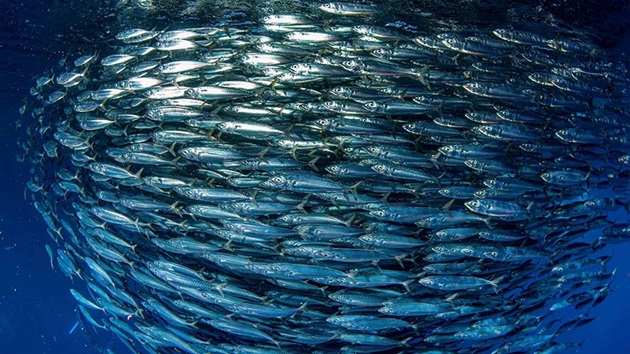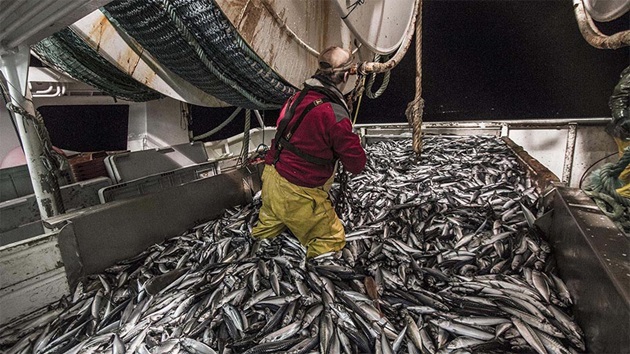Important pelagic fish stocks in the North East Atlantic - mackerel, Atlanto-Scandian herring and blue whiting - continue to be overexploited due to government inaction on reaching quota sharing agreements in line with scientific advice.
In the last eight years total combined catches of mackerel, Atlanto-Scandian herring and blue whiting exceeded scientific recommendations by more than 7.5 million tonnes – fish which, if the scientific advice had been followed, should have been left in the sea.
2025 advice from the International Council for the Exploration of the Seas (ICES) recommends a 77% cut in mackerel catches in 2026. It also advises a 41% reduction in the catch of blue whiting.
The situation with Atlanto-Scandian herring is more positive with ICES advising a 23% increase in catch which is linked to stronger recruitment (juvenile fish maturing into the adult population) in recent years, though stock is still approaching its critical threshold.
Too much fishing in the North East Atlantic
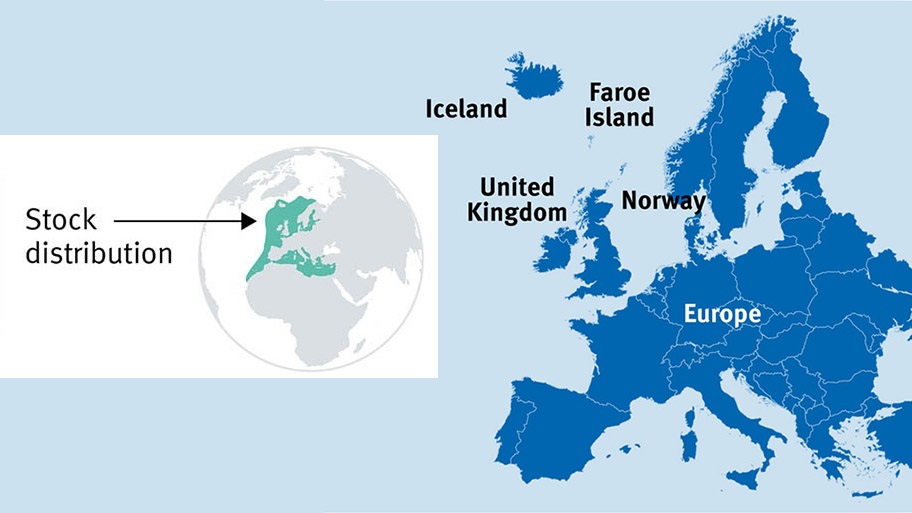
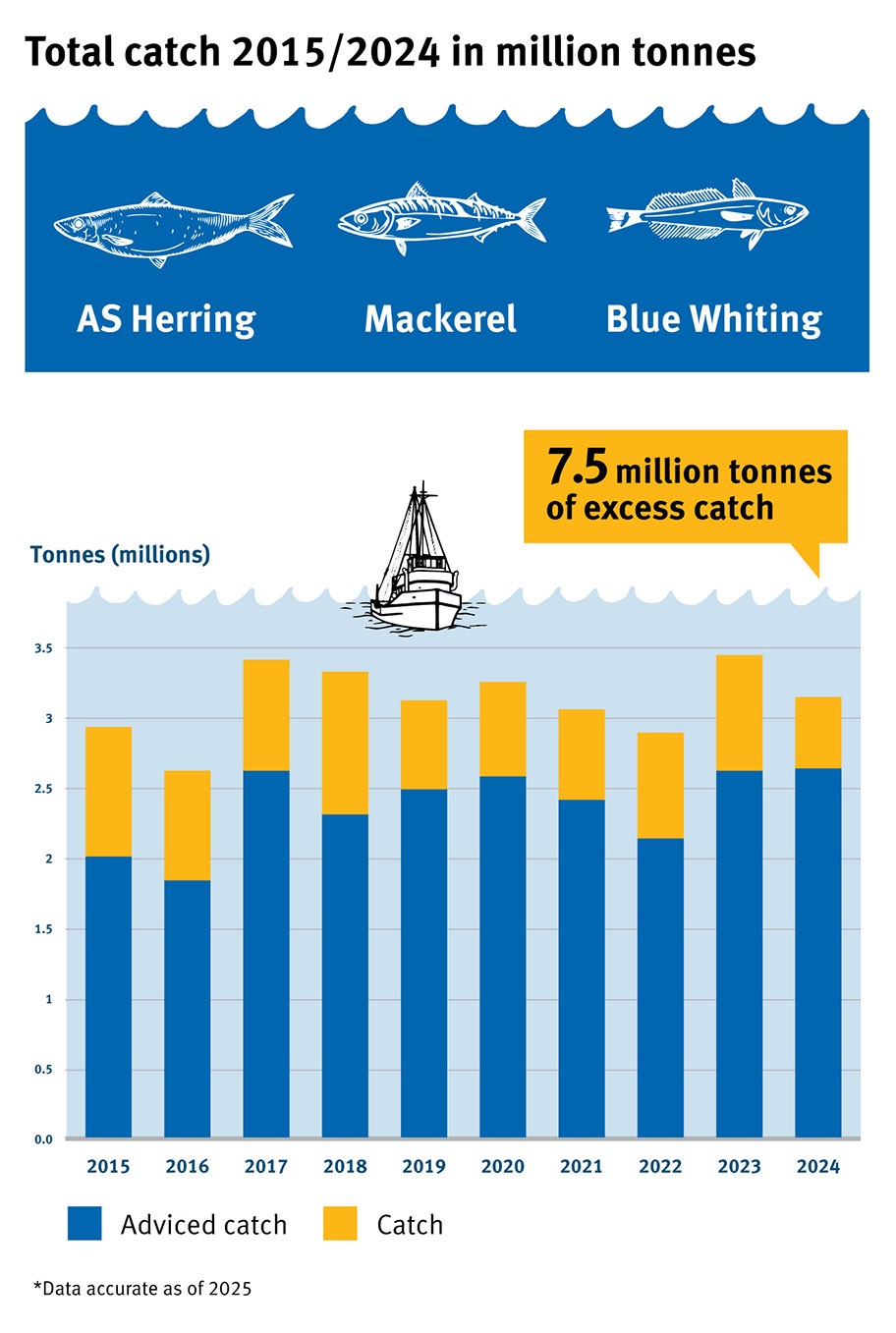
States consistently setting quotas beyond scientific advice
While states agree that a Total Allowable Catch in line with scientific advice is needed, they have repeatedly failed to agree how to share this catch between them. Instead, each state is setting an individual quota, with the sum of these individual quotas being consistently higher than the sustainable catch limit advised by the International Council for the Exploration of the Sea (ICES).
This has led to overexploitation of these key stocks, threatening their future sustainability. In 2023, combined catches exceeded ICES advice by 33% for Atalanto-Scandian herring, 35% for mackerel, and 28% for blue whiting.



Scientific advice must be followed to secure long-term health of fish stocks
Securing healthy pelagic fish stocks for future generations can only be achieved through agreement on quota shares that ensure stocks are harvested in line with scientific advice. This responsibility lies in the hands of a few countries that are among the wealthiest in the world. They have access to rich stock data and scientific expertise, and they are highly sophisticated in terms of fishing technology, controls and enforcement. It is their responsibility to manage these shared and public natural resources sustainably - for the good of the industry, society and our planet.
The three key pelagic fish stocks are shared by the European Union (EU), Norway, Iceland, the United Kingdom (UK) , the Faroe Islands, Greenland, and the Russian Federation . These states form the North East Atlantic Fisheries Commission (NEAFC) contracting parties. They are responsible for setting a Total Allowable Catch in line with scientific advice from ICES. Crucially, these states must also agree on national quotas to share the Total Allowable Catch between them.
Fish stocks under threat
While the three pelagic stocks in the North East Atlantic are known to have high fluctuations in stock biomass over time, their populations have shown an overall downwards trend in recent years. The notable declining population of Atlanto-Scandian herring is particularly concerning, having fallen 36% over the past decade. This stock collapsed in the late 1960s due to overfishing, and only recovered following 20 years of restricted catches. The collapse of these stocks would cause huge harm to marine ecosystems in the region. It would also mean the loss of a valuable food source for consumers and threaten the security for those working in the pelagic fishing industry.
Stock management in times of climate change and political instability
Political challenges such as Brexit and the Russian/Ukraine war, as well as the shifting distribution of fish stocks, accelerated by the impacts of climate change, are making negotiations between fishing nations more difficult. But it is exactly those challenges that also make the need for adaptive and resilient fisheries management and long-term agreements ever more crucial.
Stock distribution Atlanto-Scandian Herring
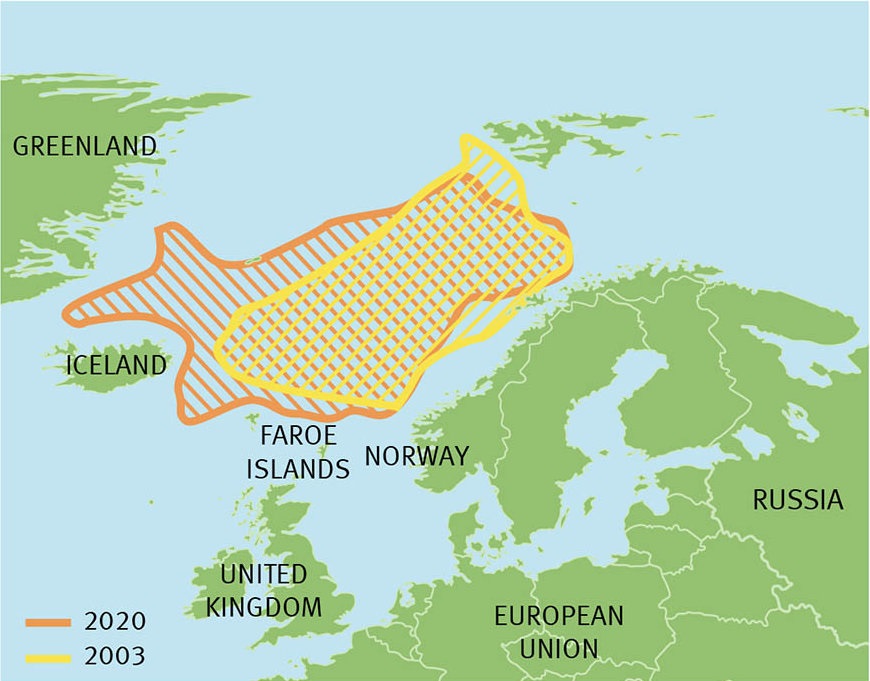
Stock distribution mackerel
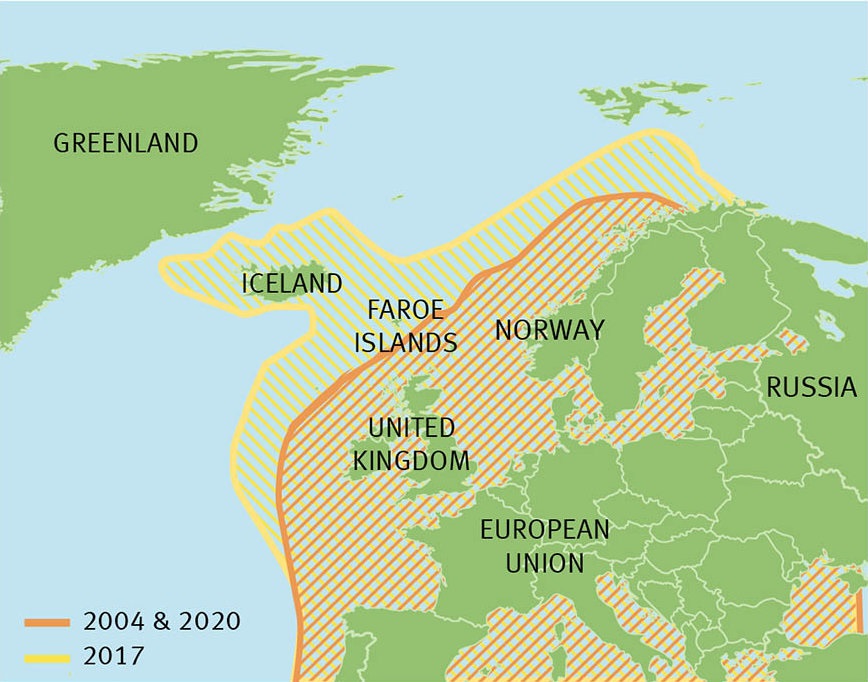
Stock distribution blue whiting
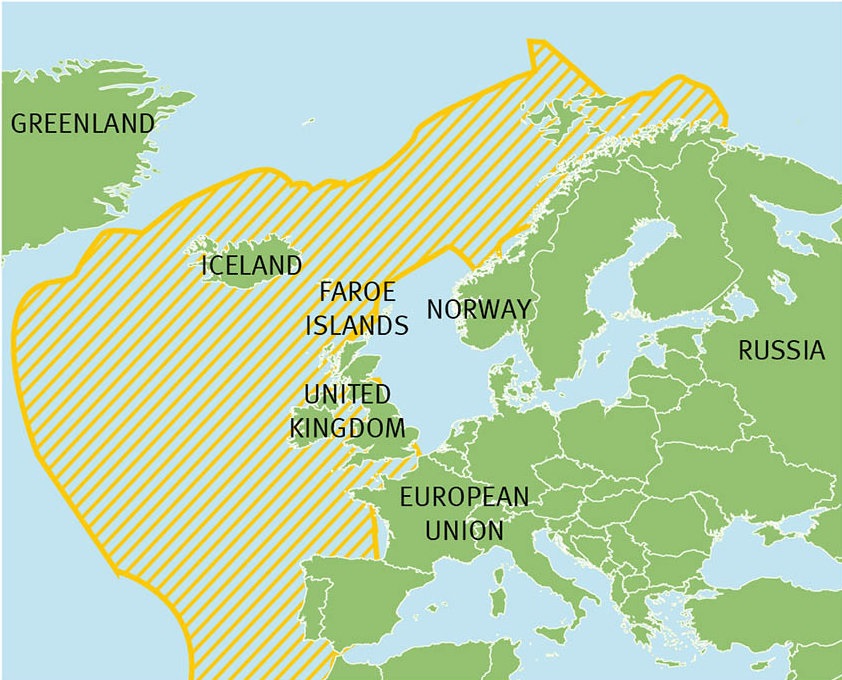
Withdrawal of MSC certification
Robust stock management, science-based catch quotas and cooperation between all fishing nations are important components of an effective and sustainable fisheries management framework. They are also key requirements of the MSC Fisheries Standard.
The lack of quota sharing agreements has resulted in all MSC certified mackerel, Atlanto-Scandian herring, and blue whiting fisheries in the North East Atlantic being suspended and losing the MSC ecolabel.
Despite the efforts of fishers, their practices cannot be certified sustainable without effective fisheries management in place. This requires governments to secure quota sharing agreements in line with science, and nested within robust management plans. Only through effective stock-sharing agreements can we ensure the long-term health of these stocks for future generations.
A sustainable quota sharing agreement is also a key prerequisite for any potential re-certification of North East Atlantic mackerel, AS herring and blue whiting fisheries against the MSC standard.

